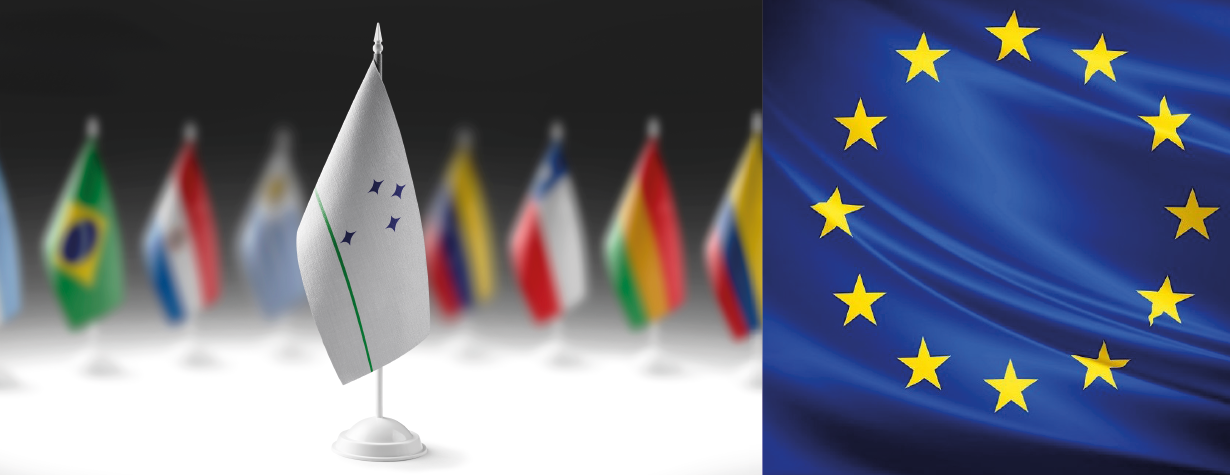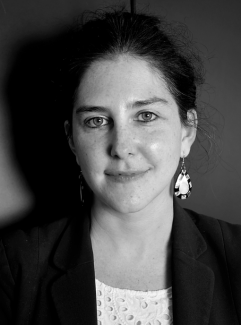Between „Strategic Autonomy” and „Zeitenwende”: The Importance of Trade Between The EU and Mercosur
This policy paper analyses the geopolitical and economic significance of the EU-Mercosur agreement for the European Union (EU) in the context of the EU’s new European Economic Security Strategy.

In view of geopolitical changes and growing protectionist tendencies of large economies such as China and the USA, closer co-operation with the Global South, including the Mercosur countries, is considered necessary. Germany and France have reorganized their trade policies, in particular through a joint industrial strategy and a derisking strategy to reduce economic vulnerabilities, which could represent an opportunity to bring together traditionally different views of trade policy.
The Mercosur agreement offers the EU the opportunity to deepen its economic relations with South America and reduce dependencies on other global trading powers. This could be achieved by opening up European markets for South American agricultural commodities and the export of European industrial goods. The aim is to promote bilateral trade and investment and reduce trade barriers, also in order to position the EU as a serious alternative trading partner to China.
The policy paper concludes that the Mercosur agreement could be an essential building block for the EU’s economic security in a fragmented world, provided that the different national interests within the EU are harmonized and a clear strategy is developed to overcome geopolitical challenges.
- This note was written in partnership with the IW Köln. The German Economic Institute (IW) is a private economic research institute in Germany, which is an advocate of a liberal economic and social order. We work to improve understanding of how business and society function and interact.
Simon Gerards Iglesias, Economist and Economic Historian, The Institut der deutschen Wirtschaft, Cologne.
Marie Krpata, Research Fellow at the Study Committee on Franco-German Relations (Cerfa) at the French Institute of International Relations – Ifri.
Ana Helena Palermo Kuss, Economist and Advisor to the President at ZEW - Leibniz-Zentrum für Europäische Wirtschaftsforschung, Mannheim.
This publication is available in:
German: "Zwischen „strategischer Autonomie” und „Zeitenwende”: Die Bedeutung des Handels zwischen der EU und Mercosur" on the Website of Institut der deutschen Wirtschaft (IW).

Available in:
Themes and regions
Share
Download the full analysis
This page contains only a summary of our work. If you would like to have access to all the information from our research on the subject, you can download the full version in PDF format.
Between „Strategic Autonomy” and „Zeitenwende”: The Importance of Trade Between The EU and Mercosur
Related centers and programs
Discover our other research centers and programsFind out more
Discover all our analysesMerz’ European Policy-making: The End of the ‘German Vote’?
Friedrich Merz’s European ambition is to turn Germany, long seen as hesitant into a leading actor within the European Union (EU). To that end, he has pledged to end the “German vote,” a phenomenon that epitomizes the paradox of a country both indispensable and frequently absent from European decision-making.

Securing critical raw material (CRM) value chains – a prerequisite for Europe’s technological resilience
At the heart of economic security, technological resilience is a backbone of the European Union’s (EU) competitiveness. The EU’s energy and digital transitions depend on critical raw materials (CRM).

Reconciling competitiveness and demographic change: a Franco-German imperative
France and Germany are facing parallel demographic shifts that could reshape the future of their economies and their social models. These shifts reflect broader European patterns but are magnified by the central role both nations play in EU governance and competitiveness.
Taking the Pulse: Does France's Political Crisis Weaken Europe's Geopolitical Hand?
While the EU tries to navigate a myriad international challenges, France is experiencing historic political disarray. What impact will instability in Paris have on Europe's geostrategic capacity?









